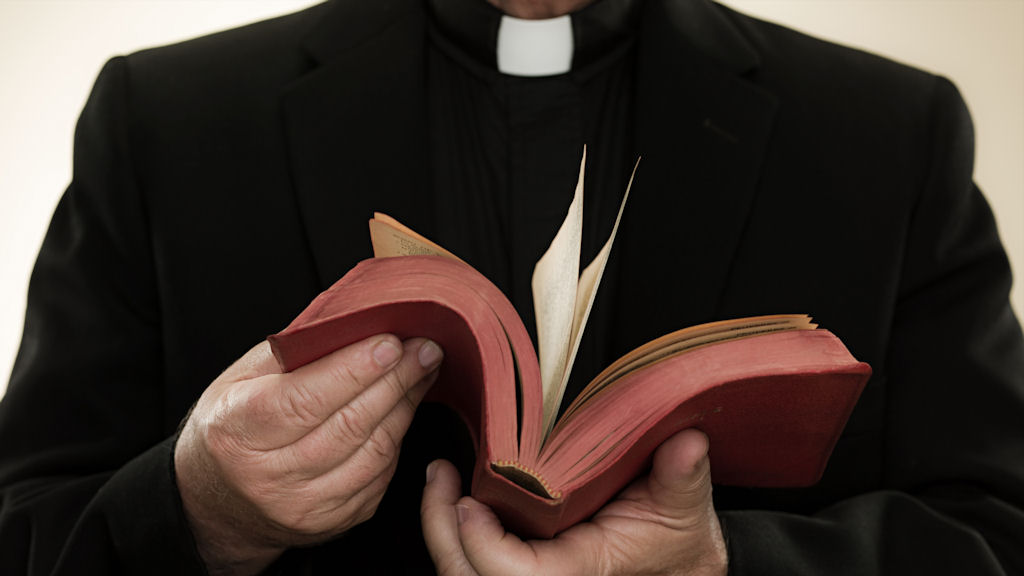Celibacy and Catholicism: the end of the affair?
As the Catholic church copes with the aftermath of another sex scandal – this time involving Cardinal O’Brien, Britain’s most senior Catholic cleric – the celibacy of priests is back up for debate.

The day after Cardinal Keith O’Brien resigned after being accused of inappropriate behaviour towards three priests and a former priest, Damian Thompson in The Telegraph wrote: “The next pope must think seriously about married priests – because the celibacy rule isn’t working.”
Now the cardinal has admitted sexual misconduct and said his actions fell below the standards expected of him as a priest, and the rules around celibacy for Catholic priests are in the headlines again.
It is one of the cruel ironies of the latest scandal that only weeks before allegations over his own conduct emerged, Cardinal O’Brien himself raised the issue of celibacy.
Speaking to the BBC, he said: “It’s a free world and I realise that many priests have found it difficult to cope with celibacy.”
While he raised the issue of a move away from celibacy for the Catholic church, it is worth pointing out that Cardinal O’Brien was no liberal – he was an outspoken opponent of plans to legalise same-sex marriage and was named “bigot of the year” by Stonewall in 2012.
But his thoughts on celibacy are now echoing round the church. Why are priests celibate? Is it still an important question for modern Catholics? Or is it simply too much of a challenge for many people?
The question of celibacy
Celibacy has not always been central to Christianity – indeed, many other branches of the faith allow priests to marry, such as the Anglican church. The bible is not clear cut about celibacy either, and at least in the beginning of the church, many priests were married.
On the other hand, people who argue that celibacy is central to Catholicism would say that Jesus himself was celibate, as was his apostle St Paul, who was probably the most instrumental disciple in spreading the word of the church in the early days. Celibacy became a custom, with some priests choosing to leave their wives to become clergy.
Watch: Cardinal Keith O'Brien admits his sexual conduct 'fell below' standards
The church realised this was not ideal, as it did not want men to abandon their families to become priests, so began to choose single priests. But it was not until much later – generally considered to be around the 11th century – that it became a fixed rule.
Jack Valero, press officer for Opus Dei in the UK and a spokesman for Catholic Voices, said there were three main reasons why celibacy was still generally considered to be a good thing for the church.
“Firstly, you give your heart to God completely and that love allows a priest to love a lot of people, it’s a caring job. Secondly, it’s the availability to give yourself to God, without worrying your wife and family would be left destitute if you die.
“And thirdly there’s a more spiritual element. Christians believe that when you die and are in heaven, you are not married or given in marriage, so priests are like prophets of the new world where we will love each other and not be married,” he told Channel 4 News.
The risks of celibacy
However, Mr Valero admitted that the issue splits Catholics. In 2011, Father Edward Daly – famous for protecting the wounded during Bloody Sunday – called for an end to celibacy to solve some of the church’s problems, not least a lack of applicants for the priesthood.
Mr Valero said he believed some Catholics wanted their priests to remain celibate, while others were open to the concept of married priests.
“Since 2010, Anglicans can become Catholic priests even if they are married. So it shows there is no real incompatibility between being married and being a priest,” he said.
“But it’s a much freer state of affairs for a priest to be celibate, to dedicate themselves to the church.”
On the other hand, many non-believers point to the regularity of sex scandals among the priesthood as a decisive argument about the dangers of celibacy. And these are not just scandals involving adults – child abuse in the church is an appalling, but well-documented, problem.
In 2010, Channel 4 News compiled a map showing 37 cases across England and Wales where priests have committed sexual offences against children.
Some people make it work, others fail, and when they fail, it’s a scandal. Jack Valero, Catholic Voices, on celibacy
At the same time, there were also a host of allegations in Pope Benedict XVI’s home country, Germany, where Professor Klaus Beier, head of the Institute of Sexology and Sexual Medicine at Berlin’s Charite Hospital, said in a television debate: “If you are already struggling with a conflicted sexuality, including paedophile tendencies, then it is attractive to become part of an institution that obliges you to be celibate.”
But Mr Valero rejects such accusations completely.
“We know child abuse does not come from celibacy. It’s a terrible thing but most child abusers are not celibate, but in the families. In reality it’s about a sickness, and sick people will do it whether they are in priesthood or wherever,” he said.
While he accepted that child abuse was an abomination, he pointed out that sometimes “scandals” in the church came about merely when people broke their vows, as in other walks of life.
“We have scandals whether people are married or celibate, when they break their vows,” he said.
“Everybody is weak. I don’t think celibate people are weaker or stronger. They are normal like everyone else. We make a promise and think we’ll try. Some people make it work, others fail, and when they fail, it’s a scandal.”